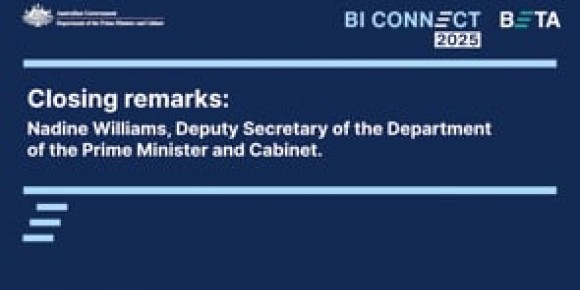BI Connect 2025 was held on 6 November 2025.
The conference focused on ‘Behavioural Insights in government: Applying behavioural insights from policy design to program delivery’.
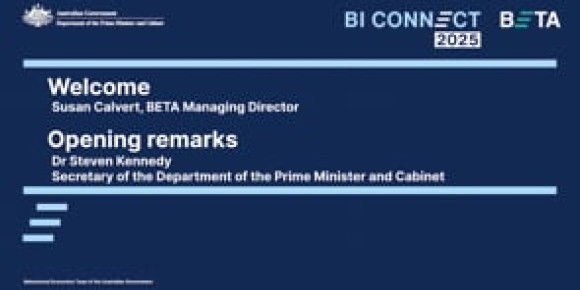
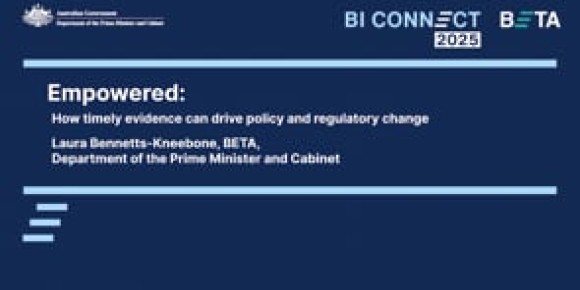
BI Connect 2025
Empowered: How timely evidence can drive policy and regulatory change
Laura Bennetts-Kneebone
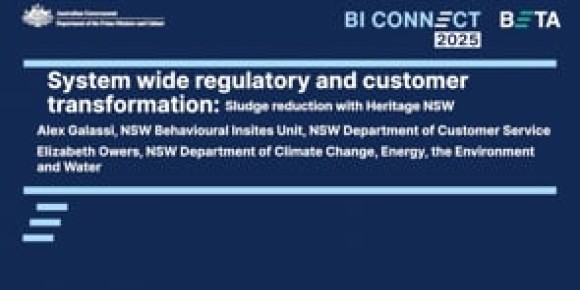
BI Connect 2025
System wide regulatory and customer transformation: Sludge reduction with Heritage NSW
Alex Galassi, Elizabeth Owers
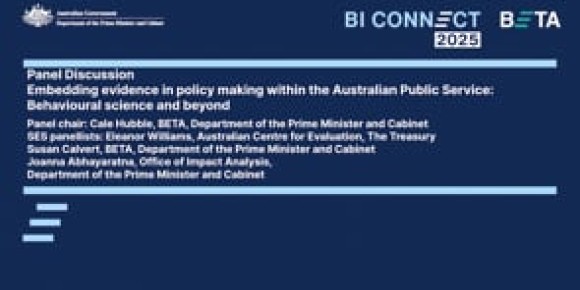
BI Connect 2025
Embedding evidence in policy making within the Australian Public Service: Behavioural science and beyond
Cale Hubble, Eleanor Williams, Susan Calvert, Joanna Abhayaratna
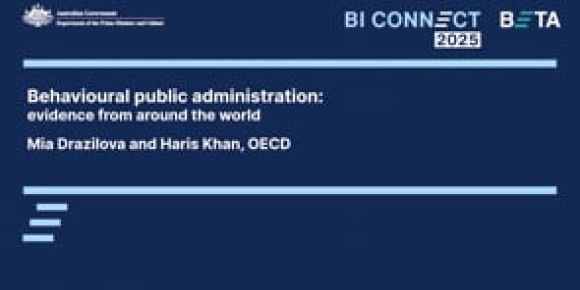
BI Connect 2025
Behavioural public administration: evidence from around the world
Mia Drazilova, Haris Khan
